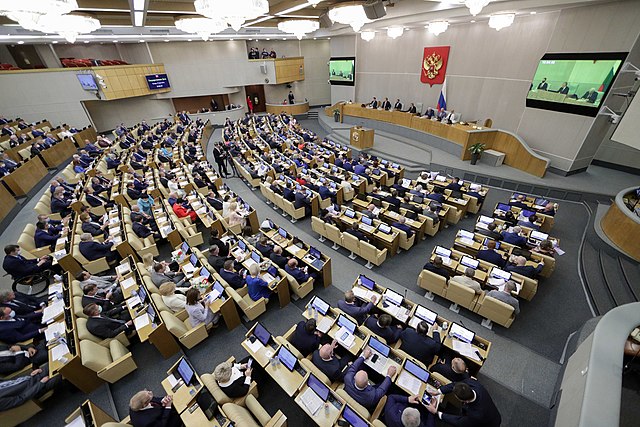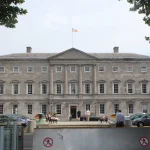Russia stepped up the information war over the Ukraine on March 4.
The government tightened control of information inside Russia two days after the European Union banned two major Russian state-owned media in Europe – RT (formerly Russia Today) and Sputnik.
- Russia’s parliament passed strict laws against spreading what it called “fake” news about the military, including jail terms of up to 15 years.
- The parliament also imposed fines for public calls for sanctions against Russia
- Russia’s media regulator restricted access to the Russian language websites of BBC, Deutsche Welle, Voice of America, Radio Free Europe/Radio Liberty, and Meduza.
Russia’s media regulator said its “grounds for restricting access to these information resources on the territory of the Russian Federation was their deliberate and systematic circulation of materials containing false information.”
It said the media organisations had spread falsehoods about “the essence of the special military operation in Ukraine, its form, the methods of combat operations (attacks on the population, strikes on civilian infrastructure), the Russian armed forces’ losses and civilian victims”.
Russian authorities had previously banned its own controlled media from using the words war or invasion – instructing them to use the term “special military operation” – and blocked access to a number of independent media inside Russia forcing them to close.
The Novaya Gazeta newspaper was the latest casualty on March 4 when its 2021 Nobel Peace Prize winning editor Dmitry Muratov said it would remove material on Russia’s military actions in Ukraine from its website because of censorship. The newspaper said it would continue to report on the consequences that Russia is facing, including a deepening economic crisis and the persecution of dissidents.
“Military censorship in Russia,” the Novaya Gazeta said, “has quickly moved into a new phase: from the threat of blocking and closing publications (almost fully implemented) it has moved to the threat of criminal prosecution of both journalists and citizens who spread information about military hostilities that is different from the press releases of the Ministry of Defense.
The European Federation of Journalists (EFJ) has condemned attempts to silence media coverage of Russia’s attack on Ukraine.
Russia’s latest actions fueled an ongoing information and cyber war that has been reported and examined for many years and of course sparked much recent debate.
Russia hits back
Russia limits access to western media
Russia silences independent media
Dismantling Russia’s independent media
Novaya Gazeta bows to pressure
European Federation of Journalists condemns silencing of the media
EU bans Russian media
The information war:
Accurate information is crucial – Article19
Fact and fiction – the New York Times
How Russia conducts cyber and information war – Brookings Institute
Kremlin propaganda surprising performance on Google – Brookings Institute
Information war forcing businesses to choose sides – CSO/IDG media
Russia’s propaganda machine keeps citizens in the dark – Globe and Mail
Putin losing information war – New Statesman
The view from Fox News








